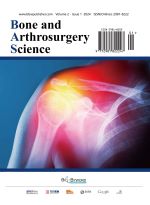Abstract
Background: The treatment and management of diabetic foot significantly impact the quality of life (QoL) of patients, yet studies concerning the effects of toe amputation on QoL are relatively limited. Methods: This study included 12 diabetic foot patients with Wagner Grade 4 who underwent toe amputation. Using the Cardiff Wound Impact Schedule (CWIS), we systematically assessed their QoL before and after the surgery. Results: Data indicated that there were significant improvements in multiple areas of QoL post-surgery. Particularly in the domains of “overall quality of life” and “well-being,” average scores demonstrated noticeable declines compared to pre-surgery levels. Statistical analysis further confirmed the significance of these results. Conclusion: Toe amputation holds significant value in enhancing the QoL for diabetic foot patients. This study provides robust evidence for clinical decision-making, emphasizing that treatment choices should consider the QoL of the patient in addition to physiological outcomes.
References
Jha V, Garcia-Garcia G, Iseki K, et al., 2013, Chronic Kidney Disease: Global Dimension and Perspectives. Lancet, 382(9888): 260–272. http://doi.org/10.1016/S0140-6736(13)60687-X
Edmonds M, Manu C, Vas P, 2021, The Current Burden of Diabetic Foot Disease. J Clin Orthop Trauma, 2021(17): 88–93. http://doi.org/10.1016/j.jcot.2021.01.017
Khanolkar MP, Bain SC, Stephens JW, 2008, The Diabetic Foot. QJM: Monthly Journal of the Association of Physicians, 101(9): 685–695. http://doi.org/10.1093/qjmed/hcn027
Ammendola M, Sacco R, Butrico L, et al., 2017, The Care of Transmetatarsal Amputation in Diabetic Foot Gangrene. Int Wound J, 14(1): 9–15. http://doi.org/10.1111/iwj.12682
Frykberg RG, Attinger C, Smeets L, et al., 2021, Surgical Strategies for Prevention of Amputation of the Diabetic Foot. J Clin Orthop Trauma, 2021(17): 99–105. http://doi.org/10.1016/j.jcot.2021.02.019
Puranik AK, Maity S, Meena SP, et al., 2021, Quality of Life of Patients with Major Amputations in the Tertiary Care Center of Western Rajasthan: A Prospective Observational Study in 2019-2020. Cureus, 13(12): e20419. http://doi.org/10.7759/cureus.20419
Price P, Harding K, 2004, Cardiff Wound Impact Schedule: The Development of a Condition-Specific Questionnaire to Assess Health-Related Quality of Life in Patients with Chronic Wounds of the Lower Limb. Int Wound J, 1(1): 10–17. http://doi.org/10.1111/j.1742-481x.2004.00007.x
van Doorn LP, Sijberden JP, Brouwers J, et al., 2020, Validation of the Dutch Translation of the Cardiff Wound Impact Schedule for Evaluation of the Health-Related Quality of Life of Patients with Chronic Wounds. Int Wound J, 17(5): 1225–1230. http://doi.org/10.1111/iwj.13388
Lozano-Platonoff A, Contreras-Ruiz J, Dominguez-Cherit J, et al., 2020, Translation, Cross-Cultural Adaptation and Validation of the “Cardiff Wound Impact Schedule,” A Wound-Specific Quality of Life Instrument, to the Native Spanish of Mexican Patients. Int Wound J, 17(1): 167–173. http://doi.org/10.1111/iwj.13253
Jaksa PJ, Mahoney JL, 2010, Quality of Life in Patients with Diabetic Foot Ulcers: Validation of the Cardiff Wound Impact Schedule in a Canadian Population. Int Wound J, 7(6): 502–507. http://doi.org/10.1111/j.1742-481X.2010.00733.x
Granado-Casas M, Martinez-Gonzalez D, Martinez-Gonzalez M, et al., 2021, Psychometric Validation of the Cardiff Wound Impact Schedule Questionnaire in a Spanish Population with Diabetic Foot Ulcer. Journal of Clinical Medicine, 10(17): 1–11. http://doi.org/10.3390/jcm10174023
